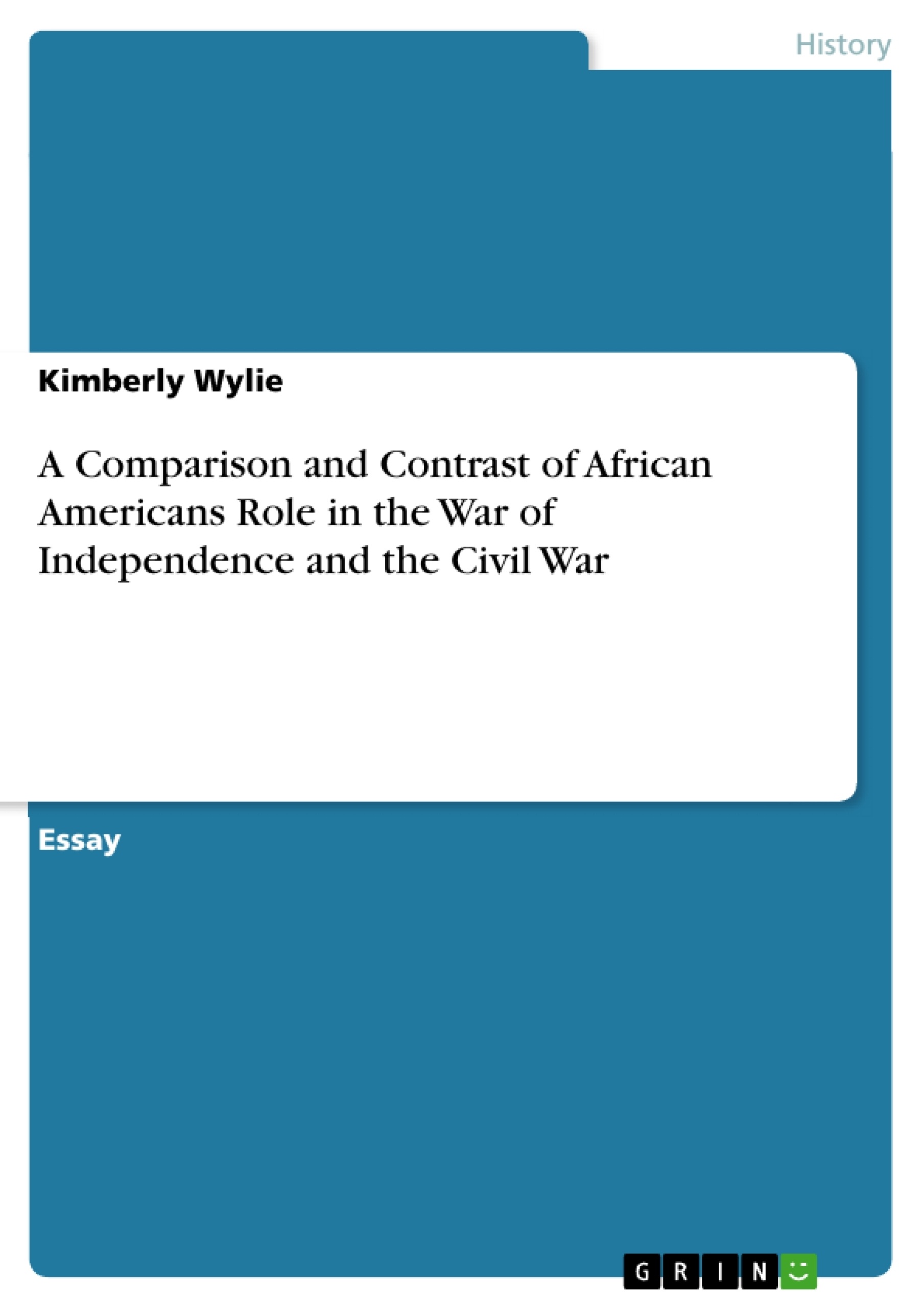America was founded on the principle of freedom. With this in mind, it comes as little surprise that both the War for Independence and the Civil War have the similarity that they both involved the struggle for freedom. Both wars sought to overcome oppression and both wars encompassed a vision of basic human rights connected with a sense of justice. The other similarity these two wars shared was the heroic efforts of African Americans in their participation in the fight for freedom. This paper will seek to compare and contrast their involvement in these to similar, but different wars.
A Comparison and Contrast of African Americans Role in the War of Independence and the Civil War

Essay , 2004 , 7 Pages
Autor:in: Kimberly Wylie (Author)
Excerpt & Details Look inside the ebook

